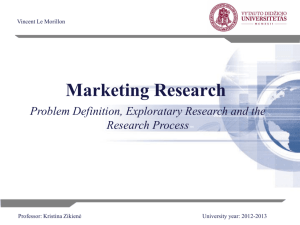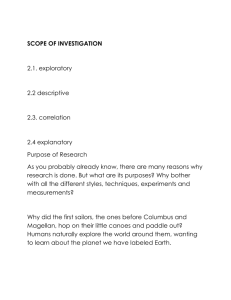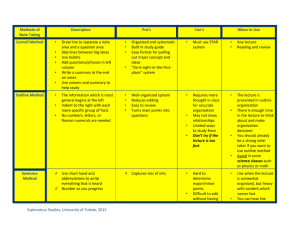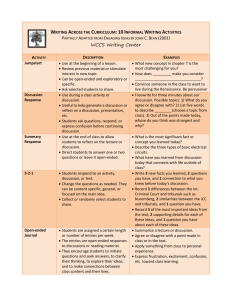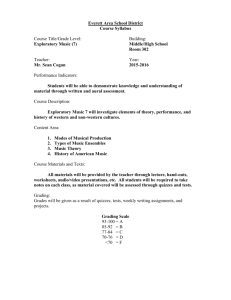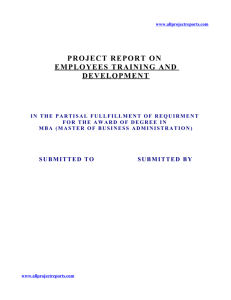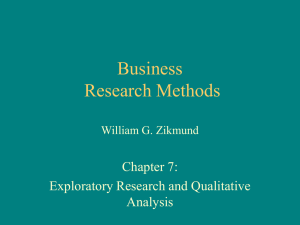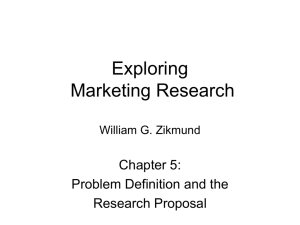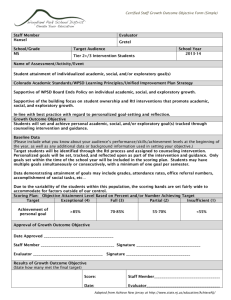Experimental Course Description
advertisement
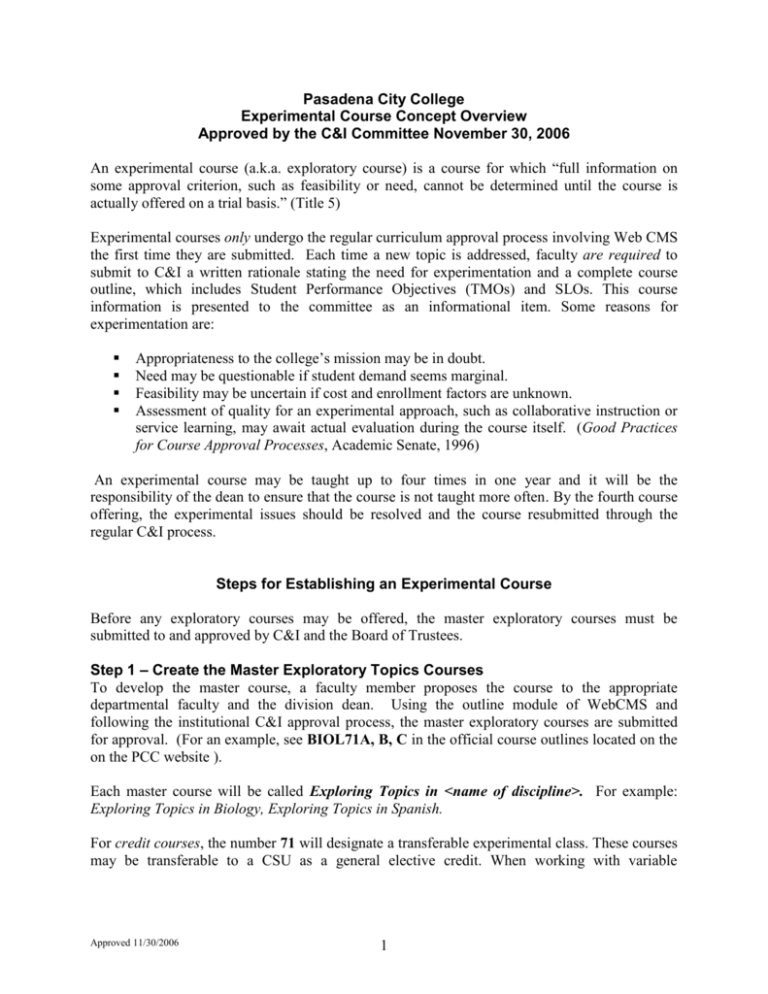
Pasadena City College Experimental Course Concept Overview Approved by the C&I Committee November 30, 2006 An experimental course (a.k.a. exploratory course) is a course for which “full information on some approval criterion, such as feasibility or need, cannot be determined until the course is actually offered on a trial basis.” (Title 5) Experimental courses only undergo the regular curriculum approval process involving Web CMS the first time they are submitted. Each time a new topic is addressed, faculty are required to submit to C&I a written rationale stating the need for experimentation and a complete course outline, which includes Student Performance Objectives (TMOs) and SLOs. This course information is presented to the committee as an informational item. Some reasons for experimentation are: Appropriateness to the college’s mission may be in doubt. Need may be questionable if student demand seems marginal. Feasibility may be uncertain if cost and enrollment factors are unknown. Assessment of quality for an experimental approach, such as collaborative instruction or service learning, may await actual evaluation during the course itself. (Good Practices for Course Approval Processes, Academic Senate, 1996) An experimental course may be taught up to four times in one year and it will be the responsibility of the dean to ensure that the course is not taught more often. By the fourth course offering, the experimental issues should be resolved and the course resubmitted through the regular C&I process. Steps for Establishing an Experimental Course Before any exploratory courses may be offered, the master exploratory courses must be submitted to and approved by C&I and the Board of Trustees. Step 1 – Create the Master Exploratory Topics Courses To develop the master course, a faculty member proposes the course to the appropriate departmental faculty and the division dean. Using the outline module of WebCMS and following the institutional C&I approval process, the master exploratory courses are submitted for approval. (For an example, see BIOL71A, B, C in the official course outlines located on the on the PCC website ). Each master course will be called Exploring Topics in <name of discipline>. For example: Exploring Topics in Biology, Exploring Topics in Spanish. For credit courses, the number 71 will designate a transferable experimental class. These courses may be transferable to a CSU as a general elective credit. When working with variable Approved 11/30/2006 1 lecture/lab combinations, the addition of A, B or C can be included. Please contact the C&I office for assistance (C223, ext. 7034). For non-transferable courses, the number 171 will designate a non-transferable experimental class. When working with variable lecture/lab combinations, the addition of A, B or C can be included. Please contact the C&I office for assistance (C223, ext. 7034). Step 2 – Create the Individual Exploratory Courses After the master courses have been created, individual exploratory courses are created in the following manner. A written rationale for the experimental nature of the exploratory course along with a detailed course outline that includes Student Performance Objectives (TMOs) and SLOs is submitted to the C&I Committee for approval in order to ensure that the proposed course meets the criteria for an experimental course and that statutory, regulatory, and academic standards are upheld. These courses may be submitted to C&I any time during the C&I cycle consistent with traditional established deadlines. This step will need to take place each time a new topic is addressed. A division could offer several sections of Exploring Topics in Biology 71A (for example) provided that a footnote in the schedule of classes clearly states the different topics covered, each separate course has been approved by the C&I Committee, and a copy of the course outline and schedule of classes are permanently on file in the department office. Deadlines for the schedule of classes need to be followed. Approved 11/30/2006 2
